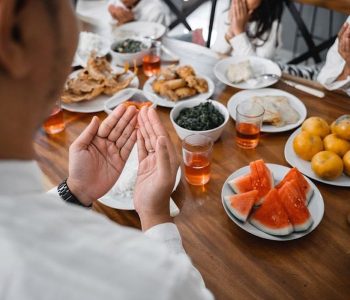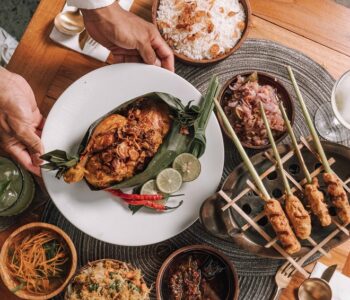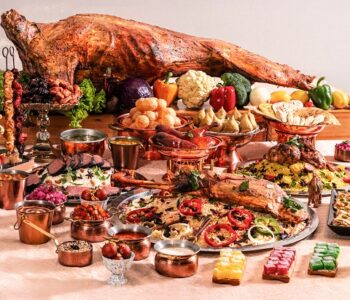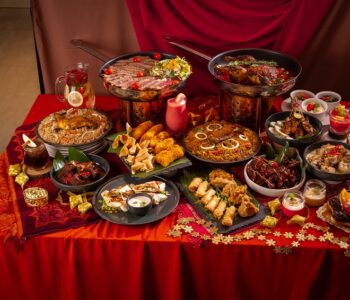
Javara Indonesia came at a time where the food biodiversity in Indonesia was at a brink of scarcity, answering to cries of help from countless farmers who were grasping to preserve heirloom grains and essential plant genetics that most people have forgotten. Today, we will explore the story about how one woman, Helianti Hilman, fuelled by her love for indigenous communities and their local wisdom, managed to save the irreplaceable wealth and treasure and revive them back to the tables of our kitchens.
According to the Food and Agriculture Organization, as of 2020, there are a total of 30,000 edible plants scattered throughout the earth, only 150 of those are cultivated. This number turns more baffling when it is reported that 75% of the world’s food came from just 12 plants and 5 animal species. With climate change posing dangers to the growth of species and plants that make up the majority of food consumption, threats of decreasing food supplies are inevitable. This homogeneity of food puts farmers and indigenous communities at risk, causing many to rely on monopolised markets controlled by major companies and gradually devaluing their autonomy.
This issue was almost like a spiritual calling for Helianti Hilman, an acclaimed lawyer who formerly focused on Intellectual Property Rights and as a consultant on rural economic development. Helianti had spent half of her career providing pro bono legal advice for smallholder farmers. Her work brought her to the doorsteps of farmers and indigenous communities who struggled to preserve food biodiversity, its heritage, and the sustainability of their livelihoods. Seeing such issues arising, Helianti founded Javara Indonesia to create an ecosystem that ensures the preservation of food biodiversity, where smallholders farmers and indigenous communities’ rights are protected and provides produce that are sustainably and ethically sourced.
Javara Indonesia facilitates the production of their goods, quite literally, from the roots. Starting from building trusts and relationships with food producer communities (farmers, fishers and food artisans) to indigenous communities (foragers, gatherers & proprietor of indigenous knowledge), where they use local wisdom to cultivate these products and safeguard the farmers’ rights as the beneficiaries and guardians of food biodiversity. When the harvesting process comes, Javara Indonesia offers technology and technical assistance, working capital and investments, as well as providing offtakers that will connect farmers and artisans to bigger markets.

The process doesn’t end there, Javara Indonesia provides assistance such as certification and quality assurance. They also offer food identity branding to increase the product value once it enters the market. Javara Indonesia ensures the outreach of these products to the farthest extent allotting them to Javara’s flagship stores, food services, retail outlets, online shops and industrial clients, domestic and international.
Since its establishment in 2008, Javara Indonesia has created hundreds of products, with SNI, EU, USDA-NOP, JAS, Halal and organic certifications and more. All produce are either natural or organically grown, free from pesticide, GMO, herbicide, and MSG, nor they contain any artificial flavouring, colourants, bleaching, preservatives and any other synthetic additives. They are also origin specific and traceable products, maintaining the risks and safety for both consumers and farmers.
As a champion of forgotten foods in Indonesia, Javara Indonesia has revived and developed the growth of grains that are on the brink of obsolescence due to its unfamiliarity amongst consumers in Indonesia. Cempo Black Rice, Andel Abang Red Rice, Menthik Susu and Menthik Wangi rice are one of the many that Javara Indonesia is cultivating as of now. It was a conversation Helianti shared with the farmers about the state of heirloom rice grains in Indonesia that is sequentially obscuring as a result of the government’s policy that forced farmers to plant certain types of rice to save harvest and abandon heirloom grains which were protected and seen as tradition and culture for farmers. Before the 70s, Indonesia used to have over 7000 varieties of rice and nowadays the numbers can be counted just by the fingers.
Knowing that the importance of preserving food biodiversity towards the sustainability of people’s lives and culture is the driving force that makes Javara Indonesia what it is today. From rediscovering these forgotten grains, they have ventured to other products such as spices, herbs, seasonings, nuts, flours, to crackers, pasta and noodles. All have reached the soils of over 30 countries in 5 different continents.



One of the rising products today is their Bali Pemuteran Salt, made from the seawater of North Bali coastline, this handcrafted artisan salt implemented the production process that is climate-friendly, allowing the farmers to produce the salt through all seasons and resulting in an organic, pure, microplastic-free and high mineral salt, one that’s even higher than Himalayan salt. There’s also the Gourmet Veggie Noodles collection, made from different types of vegetables such as broccoli, carrot, tomato, moringa, purple sweet potato, mustard green, turmeric and spinach, each combined with other locally sourced ingredients to make the noodle tantalising to your palate. This is one of the biggest export products that managed to penetrate one of the biggest supermarket chains in Chile.
Javara Indonesia is also recognised for its wide range of Indonesian spices, produced from farmers all over the country and cultivated through their own indigenous wisdom, such as Gotukola Power which is known as a ‘super-food’ for its high nutritional value, Moringa Powder, Andaliman (Indonesian Lemon Pepper) and Cubeb Pepper (Kemukus).
To further cement its place and exceptional reputation, Javara Indonesia has won two Great Taste Awards in 2022 for their Smoked Salt and Organic Coconut Sugar. The awards are considered the gold standard for food and drink products, giving accolades to the quality of Javara’s produce.





